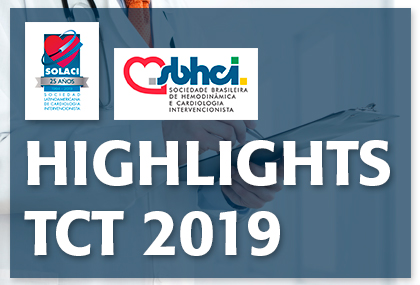Courtesy of SBHCI.
This work, presented at the TCT 2019 Scientific Sessions, showed the 30-day safety and 1-year efficacy of self-expanding prosthesis Portico compared with all valves approved by the US Food and Drug Administration (FDA) for the treatment of patients with severe aortic stenosis and high surgical risk.

Between 2014 and 2019, researchers enrolled 750 patients from 69 sites and randomized them 1:1 to receive Portico or any other prosthesis. Mean patient age was 83.3 years old and the mean Society of Thoracic Surgeons (STS) score was 6.5%.
The combined safety endpoint (death, stroke, bleeding, dialysis, or vascular complications) at 30 days was 13.8% for the Portico group vs. 9.6% for all other devices, thus reaching noninferiority. The combined efficacy endpoint (all-cause death and stroke) at one year was also similar (14.9% vs. 13.4%, respectively), reaching noninferiority.
The study also included a separate cohort of 100 patients who used the new delivery system for this valve, called FlexNaV. With this new release system, Portico had less vascular complications (7%) and less permanent pacemaker implantations (14.6%).
Conclusion
The Portico valve was associated with better hemodynamic outcomes (larger areas and lower gradients), but more paravalvular leak compared with all other commercially available prostheses. The FlexNaV delivery system showed a better safety profile.
Courtesy of SBHCI.
Link to the SBHCI publication HERE
Original Title: PORTICO: A Randomized Trial of Portico vs. Commercially Available Transcatheter Aortic Valves in Patients With Severe Aortic Stenosis.
Author of the original article: Gregory P. Fontana.
Get the latest scientific articles on interventional cardiologySubscribe to our weekly newsletter
We are interested in your opinion. Please, leave your comments, thoughts, questions, etc., below. They will be most welcome.





